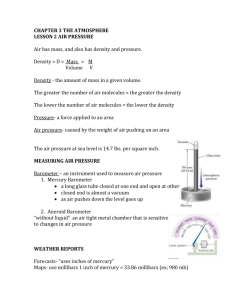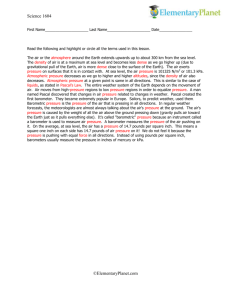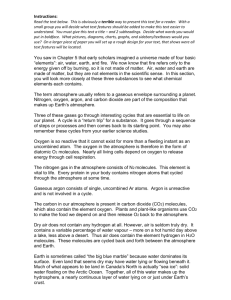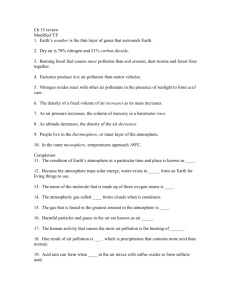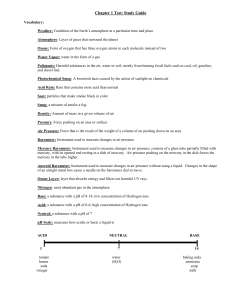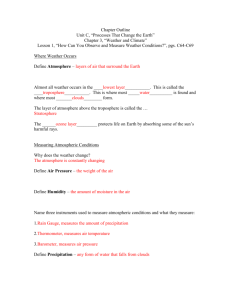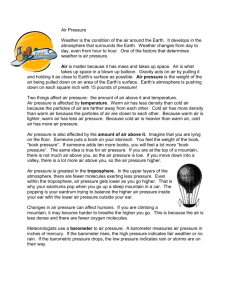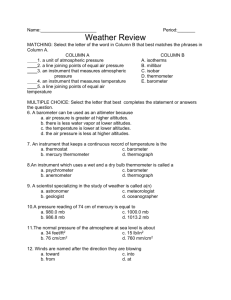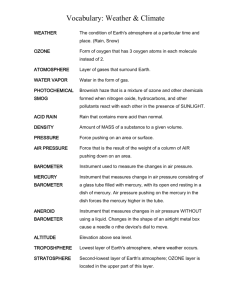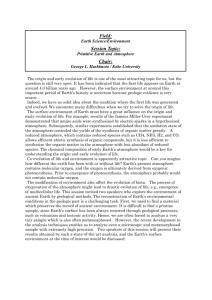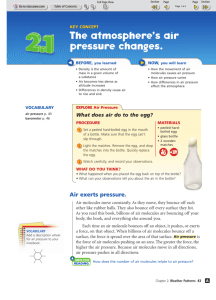Under Pressure
advertisement
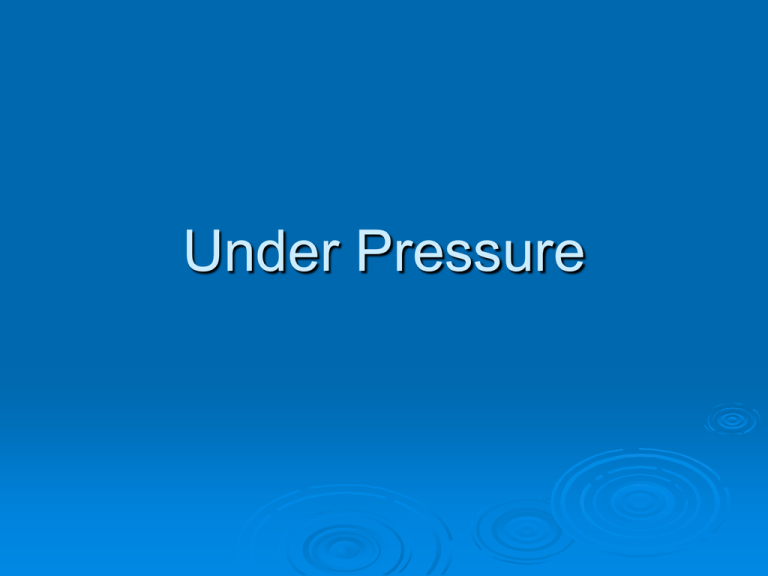
Under Pressure What is Pressure? Pressure (P) is defined as the amount of force (F) applied per unit area (A) or as the ratio of force to area: P= F/A (Formula 1) The pressure an object exerts can be calculated if its weight (the force of gravity on an object) and the contact surface area are known. For a given force (or weight), the pressure it applies increases as the contact area decreases. Try this Place your text book on your outstretched hand. Notice how much pressure is being exerted on your hand. Now try to hold the book on the tip of your index finger. How much pressure does it seem to exert now? At the Bottom of an Ocean of Air The atmosphere of our planet is pressing down on us all the time. Air pressure is the weight of the atmosphere directly above us, pushing down on our heads and bodies. The air pushes sideways, too, at the same pressure. The more molecules of air there are, the more weight presses on us. An Inch of Air Draw a square inch on a sheet of paper Imagine a column of air one square inch in diameter extending all the way to the top of the atmosphere On earth at sea level the pressure is 14.7 pounds per square inch (psi). This is defined as one atmosphere (ATM). You Explore With your table see if you can determine how many pounds are exerted on a given square. Create a graph plotting area versus force Using your graph, what can you conclude about the relationship between air pressure and area? Why Aren’t We Crushed The average pressure on a middle school student is 24,000 pounds! What keeps the air from crushing our bodies? • Remember the plastic bottle? What inside? Is Air Pressure the Same Everywhere? Take a look at your pressure vs altitude graph with your table. What can you conclude about altitudes affect on the air pressure? Using your graph can you estimate what the air pressure would be for the following locations. Chicago, IL (580 ft) Las Vegas, NV (2,030 ft) Leadville, CO (10,177 ft) Mt. Whitney, CA (14,495 ft) Mt. Everest (29,035 ft) Airplane Cruising at 30,000 ft. How Air Pressure Works The pressure is affected by two things: How much atmosphere there is The mass of the planet, which determines the gravity that pulls the air down. Just like the pile of books The pressure effect: the more books there are, the more pressure there is on the ones at the bottom. The ones at the top feel very little pressure. If you are standing at a high elevation, like on a mountain top, then there is less atmosphere above you than if you are standing at the beach (sea level). Air Pressure on Other Planets Venus Same mass as the earth More gas molecules in its atmosphere. Density = mass volume At ground level, the atmospheric pressure of Venus is 90 atmospheres: 90 ATM x 14.7 lbs/inch2 = 1323 lbs/inch2. Air Density Because there is less air pressure when we climb up mountains the air is less dense at higher altitudes The molecules of air a farther apart (some people describe this as “thin air”) We huff and puff, trying to get enough oxygen into our lungs. Our bodies are affected in two ways 1. Reduced air pressure decreases the amount of air we take in as we breathe 2. There are fewer oxygen molecules to breathe in each cm3 Measuring Air Pressure Atmospheric pressure is measured by an instrument called a barometer. Mercury – air pressing down on mercury force it up glass tube Aneroid – without liquid Reading Barometric Measurements A rising barometer indicates increasing air pressure Indicates good, dry, colder weather A falling barometer indicates decreasing air pressure Storms, rain and windy weather Pressure Units Metric A unit for air pressure is a millibar Average air pressure at sea level is 1013.25 millibars line on a weather map connecting points of equal air pressure is called and isobar Homework Use the terms on page 50 of your Science Textbook to do the following: Write a definition of each term Write a sentence using each term Draw a picture of each term. Read article on Air Pressure and complete worksheet.
